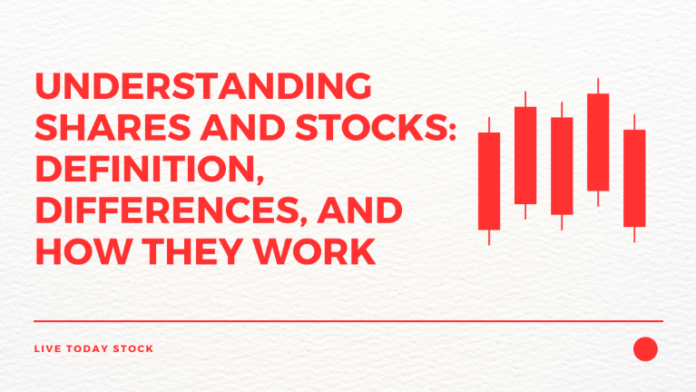Shares and stocks are both terms used to describe ownership in a corporation, but they have distinct meanings and implications in the financial markets. In this comprehensive guide, we’ll explore what shares and stocks are, their differences, and how they function in the context of investing.
What is a Share?
A share represents ownership in a company and entitles the shareholder to a portion of the company’s profits, as well as voting rights in corporate matters. When an individual buys shares of a company, they become a part-owner of that company and are entitled to benefits such as dividends and capital appreciation.
What is a Stock?
The term “stock” is often used interchangeably with “share,” but it can also refer to the collective shares of a company that are available for trading on the stock market. Stocks represent ownership in a company and are bought and sold on stock exchanges such as the New York Stock Exchange (NYSE) or the Nasdaq.
Differences Between Shares and Stocks
- Individual vs. Collective Ownership: A share represents individual ownership in a company, while a stock refers to the collective ownership of a company’s shares available for trading on the stock market.
- Trading Venue: Shares are issued by companies and traded on stock exchanges or over-the-counter markets, while stocks are traded exclusively on stock exchanges.
- Usage in Context: “Share” is typically used to describe ownership in a specific company, while “stock” is used more broadly to refer to ownership in companies in general or as an asset class.
How Shares and Stocks Work
- Ownership Rights: Shareholders have ownership rights in the company, including voting rights in corporate matters such as electing the board of directors and approving major corporate decisions.
- Dividends: Shareholders may receive dividends, which are distributions of the company’s profits, typically paid quarterly or annually.
- Capital Appreciation: Shareholders may also benefit from capital appreciation if the value of their shares increases over time, allowing them to sell their shares at a profit.
Conclusion
Shares and stocks represent ownership in a company and provide investors with the opportunity to participate in the company’s success through dividends and capital appreciation. By understanding the differences between shares and stocks and how they function in the financial markets, investors can make informed decisions about investing in individual companies or broader stock market indices.

